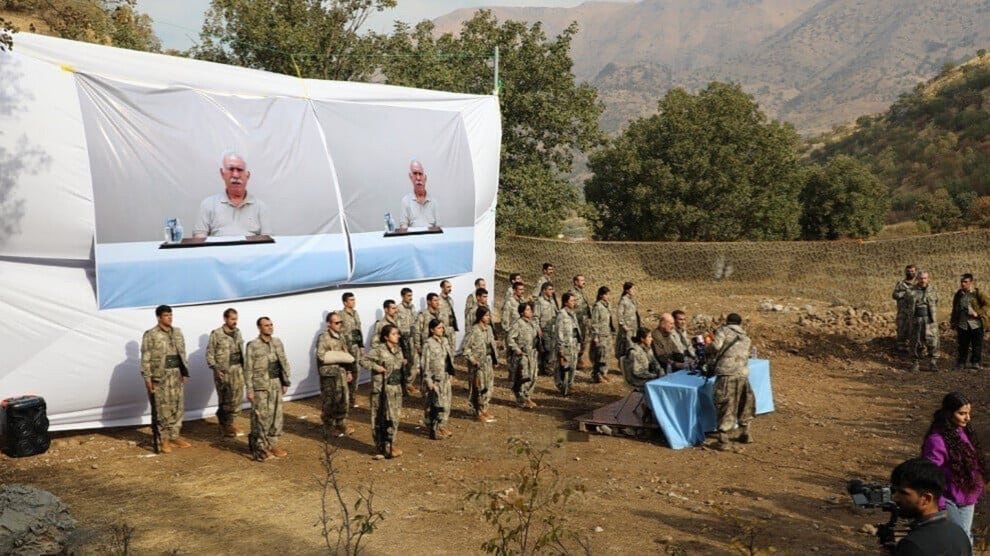PKK Announces Withdrawal of Fighters Inside Turkey, Signals Next Phase in Peace Process

The PKK says it has withdrawn all of its fighters inside Turkey as part of the ongoing peace process with the Turkish state. At the press conference where the announcement was made, at least 25 fighters who had been operating inside Turkey were present, including two commanders.
Context: The press conference took place on the southern edge of the Qandil Mountains near the town of Ranya, in areas controlled by the Patriotic Union of Kurdistan (PUK).
On 27 February 2025, Abdullah Öcalan, the PKK leader, called in a public statement for the PKK to lay down its arms, convene a congress, and dissolve itself. The PKK later announced that it held its 12th Congress on 5–7 May and decided on self-dissolution.
On 11 July, at a ceremony in the Jasenah Cave on the border of the PUK-controlled Dukan district in Sulaimani province, a group of PKK guerrillas burned their weapons as a goodwill gesture to advance the peace process in Turkey.
Analysis: The PKK’s practical withdrawal from inside Turkey appears to have begun about a month ago. For example, on 29 September there were reports of intense Turkish military activity in the mountainous areas of Mardin province—traditionally a hotbed of PKK activity—but without clashes, suggesting the withdrawal has been conducted in coordination with Turkish intelligence.
The PKK’s presence inside Turkey had already been largely diminished since 2021 amid increasingly effective Turkish drones enabling 24-hour ISR surveillance and precision strikes, coupled with four-season military operations that pushed the organization mostly south into the Kurdistan Region of Iraq.
Notably, the groups are withdrawing to PKK-held areas of the Kurdistan Region, where the organization has entrenched and consolidated its presence.
It is also worth noting that in today’s press conference the PKK statement described the peace process as prompted by “the very serious threats related to the future of Turkey and the Kurds, posed by the conflicts and wars in the Middle East.”
With this new PKK step, the Turkish state is also expected to move in parallel, as a parliamentary committee working on legal reforms—intended for passage in parliament—is concluding its work before the end of the year.
Turkish journalist Yıldıray Oğur, who first broke news of the renewed peace-process push before it started last year, said last week that, according to his sources, “The PKK is being asked to show its weapons depots in Iraq,” a request likely coming from the National Intelligence Organization (MIT). It remains unclear whether this step will be taken or whether the PKK has accepted it.
That the PKK has taken new steps despite growing Turkish pressure on the SDF in Syria suggests either that the two dossiers have been decoupled—which seems unlikely—or that Ankara’s public statements are largely for domestic consumption and that concessions may have been made on the SDF file.
In tandem, the PKK’s Iranian offshoot PJAK has also been entrenching and building new tunnels and infrastructure near the Iranian border in Sulaimani province.









